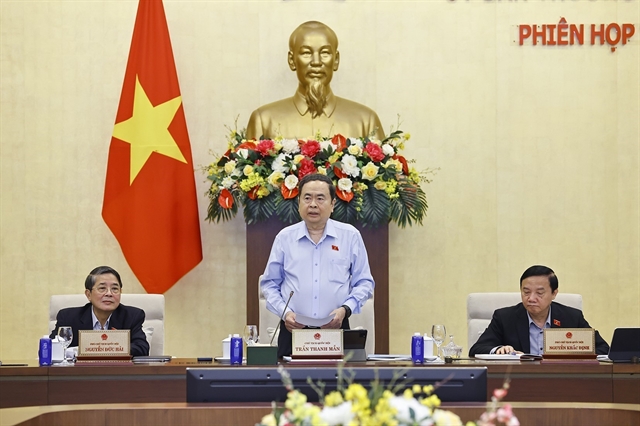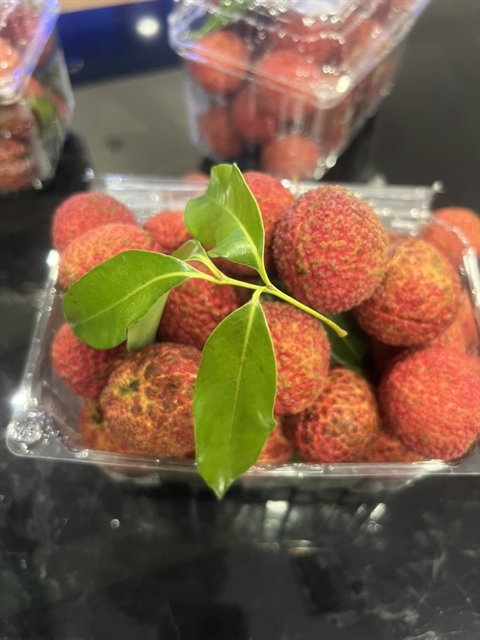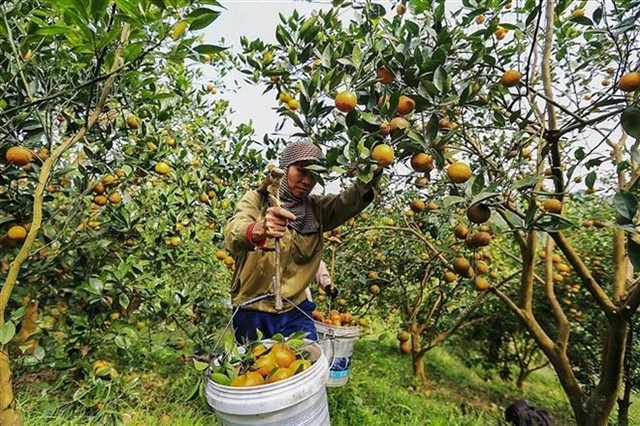 Economy
Economy

 |
| Ngọc Lặc seedless litchi imported into the UK. — VNA/VNS Photo |
HÀ NỘI — The Việt Nam Sanitary and Phytosanitary Notification Authority and Enquiry Point (Việt Nam SPS for short) has held a seminar on November 9 in the southern province of Cần Thơ to disseminate information and implement commitments on sanitary and phytosanitary (SPS) in the Việt Nam-United Kingdom Free Trade Agreement (UKVFTA).
The forum aimed to provide information on Việt Nam's commitments regarding SPS measures in the UKVFTA. It also addressed concerns from management agencies, businesses, cooperatives, and farmers in the Mekong Delta provinces of Bến Tre, Vĩnh Long, Hậu Giang, and Cần Thơ during the production, processing, and implementation of SPS commitments in the trade of agricultural products.
Ngô Xuân Nam, Deputy Director of the Việt Nam SPS, said Việt Nam has participated in 19 FTAs, including 16 already signed, some of which are new-generation trade deals, with comprehensive regulations on food safety and animal veterinary issues in agriculture exports.
He stressed the importance of disseminating and guiding businesses to quickly adapt to the regulations of the import market. He highlighted the need for central and local management agencies to adapt swiftly to market regulations.
Currently, the Việt Nam SPS agency has support from seven technical units from various ministries, including the Ministry of Agriculture and Rural Development, the Ministry of Industry and Trade, the Ministry of Health, and the Ministry of Science and Technology, who are accompanying the agency and businesses to address specialised issues and enhance the quality of export products.
Recently, an organic fruit cooperative (OCOP) in Châu Thành District, Hậu Giang Province, which directly exports around 10,000 tonnes of fruits to the European market and other countries, requested guidance from the Việt Nam SPS on plant quarantine procedures in compliance with regulations.
Specifically, this cooperative, in collaboration with farmers in the province and other localities, is preparing documents to obtain certification for EU Organic Certification for its organic lemons. However, citrus fruits, including lemons, when entering the European market, must undergo phytosanitary treatment using sodium or calcium hypochlorite solution at 200ppm for two minutes. However, according to organic production standards, calcium hypochlorite is not allowed to be used directly on the product.
After receiving the cooperative's request for assistance, the Việt Nam SPS is currently working with the EU's authorities to find solutions to these issues.
 |
| Harvesting Cao Phong oranges to be exported to the UK. — VNA/VNS Photo |
Overview of Plant Quarantine Regulations in the UK Market
According to information from the Việt Nam SPS, in the first eight months of 2023, the total trade value between Việt Nam and the UK reached US$4.62 billion, with Việt Nam exporting nearly $4.1 billion to the UK.
After the UKVFTA came into effect, 85.6 per centof tariffs on Vietnamese goods exported to the UK were eliminated. By 2027, this figure is expected to increase to 99.2 per cent. Notably, after the UK completes the necessary procedures to become the 12th member of the Comprehensive and Progressive Agreement for Trans-Pacific Partnership (CPTPP) in 2024, it is forecast there will be significant growth in Việt Nam's highly potential products, especially agricultural and food products like fragrant rice, tuna, honey etc., due to tariff preferences.
Việt Nam SPS assesses that the UK will gradually change its SPS measures. Statistics show that, in the first 10 months of 2023, the UK updated 1,000 notices related to changes in SPS measures for the exports of Vietnamese agricultural products from WTO member countries. Among them, the UK had 23 draft changes of notices in 2023.
Nguyễn Quang Hiếu, Head of the International Cooperation Department, Plant Protection Department (Ministry of Agriculture and Rural Development), outlined the UK and Northern Ireland's plant quarantine regulations for imported goods of plant origins, which are categorised into 6 groups, including seeds, fruits, seedlings, cut flowers, plant parts, and vegetables; tubers, including potatoes; and various types of machinery and equipment serving agriculture and forestry.
The UK will implement 5 levels of plant quarantine controls.
First is prohibition, where goods from foreign countries entering the UK market must have a license or guarantee.
Second is restricted entry, requiring evaluation of risk by the UK's Department for Environment, Food and Rural Affairs, and the relevant specialised agency will implement management measures based on each risk.
Third is managed entry and notification, requiring imported and exported products to be accompanied by a phytosanitary certificate and advance notice of import. This certificate is issued by the exporting country. In Việt Nam, the certificate is issued by local plant protection departments.
Fourth is managed control, where products in this category must be accompanied by a phytosanitary certificate.
Fifth is non-controlled, meaning these products do not require a phytosanitary certificate or advance notice.
In addition, according to plant quarantine regulations, all batches must meet basic requirements, being free from plant quarantine objects of the UK and Northern Ireland. They must also have a phytosanitary certificate for most types of plants and living parts of plants, including all seeds for planting.
For packaging materials made of wood, they must comply with the international standard for wood packaging materials (ISPM-15). Some fruits (such as berries, kiwi, coconut, durian, banana, mango, passion fruit etc), vegetables, and processed products (salads, bread, frozen ingredients) do not require a phytosanitary certificate.
Representatives from the Plant Protection Department also identified some plant quarantine objects discovered by the UK in Việt Nam's agriculture products, including bacterial wilt disease, tobacco aphid, etc. Particularly of concern is the leaf miner, which is considered a high-risk pest.
Trần Thị Mỹ Hạnh, from the Southern Horticultural Research Institute, advises that depending on the plant quarantine object, farmers, cooperatives, and export businesses should choose suitable management measures.
For Integrated Pest Management (IPM) methods, which include measures from breeding, cultivation, biological, and chemical measures, farmers, if properly instructed, will know how to prevent diseases correctly without leaving pesticide residues on agricultural products. — VNS
The UKVFTA was officially signed on December 29, 2020. The agreement was negotiated based on the principles inherited from the Free Trade Agreement between Việt Nam and the European Union (EVFTA), with necessary adjustments to ensure compatibility with the bilateral trade framework between Việt Nam and the UK.




